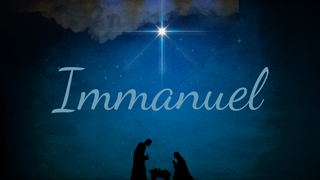-
Give Thanks to The Lord...
...For He is Good: for his mercy endures forever. Psalm 136:1

In a time when we stop to gather with friends and family to reflect on the things we are grateful for, let's also take time to delight and meditate on God’s word. May we remember Who we give thanks to and why we give thanks to Him.
O come, let us sing unto the LORD: let us make a joyful noise to the rock of our salvation. Let us come before his presence with thanksgiving, and make a joyful noise unto him with psalms. For the LORD is a great God, and a great King above all gods.
Psalm 95:1-3Enter his gates with thanksgiving, and his courts with praise; give thanks to him and praise his name.
Psalm 100:4With praise and thanksgiving, they sang to the Lord: “He is good; his love toward Israel endures forever.” And all the people gave a great shout of praise to the Lord, because the foundation of the house of the Lord was laid.
Ezra 3:11For the LORD shall comfort Zion: he will comfort all her waste places; and he will make her wilderness like Eden, and her desert like the garden of the LORD; joy and gladness shall be found therein, thanksgiving, and the voice of melody.
Isaiah 51:3But thanks be to God, who always leads us as captives in Christ’s triumphal procession and uses us to spread the aroma of the knowledge of him everywhere.
2 Corinthians 2:14And the twenty-four elders, who were seated on their thrones before God, fell on their faces and worshiped God, saying:
“We give thanks to you, Lord God Almighty,
the One who is and who was,
because you have taken your great power
and have begun to reign.
Revelations 11:16-17 -
Grace in Relationships
 Written by volunteers with Iron Rose Sister Ministries Crismarie Rivas (daughter) in Ecuador, and Johanna Zabala (mother) in Venezuela
Written by volunteers with Iron Rose Sister Ministries Crismarie Rivas (daughter) in Ecuador, and Johanna Zabala (mother) in VenezuelaWhen we talk about grace in relationships, we focus on personal, family, work, social, and friendship areas, immediately connecting them to the precious spiritual aspect because, as we know, grace would not be grace if it had not been given by God.
A clear example in scripture is the apostle Paul, who, through the Holy Spirit, speaks to the church in Ephesus and to us today, affirming that "by grace we have been saved" (Eph. 2:1-10 NKJV).
This shows us the free and undeserved favor that comes from the love and will of God toward every human being on the face of the earth. Also, it carries a series of unique characteristics of the saving grace of our Lord Jesus Christ: His love, goodness, compassion, consideration, and mercy shown to each of us.
Today, we live in a society that little knows the redeeming grace of Jesus Christ. Because of this, there is very little grace in the world's relationships.
However, for each of us as daughters of God and knowing His will through His grace given through His son, our Lord Jesus Christ, we need to demonstrate grace in relationships, especially in the family of faith. This encompasses everything: love, kindness, compassion, consideration, and mercy.
These are key elements to a genuinely gracious, single-minded relationship with Christ. This relationship leads us to practice the direct command to love one another, as indicated in 1 John 4:7, and links us to obedience to God.
To this effect, the grace of God is a divine and wonderful gift that gives us love, forgiveness, and strength to foster understanding, reconciliation, and spiritual growth that unites us powerfully.
The Bible repeatedly teaches about the application of grace in our relationships. Going back to Ephesians 1:6-7 (NKJV), we are reminded, "To the praise of the glory of his grace, by which he has made us accepted in the Beloved, in Him we have redemption through his blood, the forgiveness of sins, according to the riches of his grace." This tells us that the grace of God accepts us as we are and frees us from the burden of sin through the sacrifice of Jesus.
Likewise, grace precedes forgiveness and reconciliation. "Bearing with one another, and forgiving one another, if anyone has a complaint against another; even as Christ forgave you, so you also must do" (Col. 3:13).
Grace calls us to forgive as Christ forgave us. By forgiving, we immediately open the door to reconciliation and maturity in each of our relationships. First Corinthians 13:4-7 beautifully tells us,
Love suffers long and is kind; love does not envy; love does not parade itself, is not puffed up; does not behave rudely, does not seek its own, is not provoked, thinks no evil; does not rejoice in iniquity, but rejoices in the truth; bears all things, believes all things, hopes all things, endures all things.
So, it is great to recognize that grace enables us to be patient and tolerant in all our relationships, reflecting God's love in our conduct and actions. And it is here when grace becomes selfless service, a unique and holy act frees us to serve others with love without expecting anything in return, following the faithful example of the beloved Jesus.
Finally, grace also allows for edifying communication. Ephesians 4:29 reaffirms, "Let no corrupt word proceed out of your mouth, but what is good for necessary edification, that it may impart grace to the hearers." Sanctifying grace is also manifested in the way we communicate. As women of God, when we edify and encourage each other with our words, we show grace to those who listen to us.
In conclusion, beloved sisters, God's grace is essential in every healthy and fruitful relationship. There is an indisputable need to apply it in our personal, family, and spiritual interactions so that we can all experience the fullness of love and peace that comes from God. From now on, may this exclusive favor from the Heavenly Father inspire us to live in grace and to always reflect it in each of our relationships. Let us ask ourselves daily, “Does the grace of the Holy Spirit accompany us and unify us all the time?”
-
Our Restored Relationship with God in Christ
 Written by Wendy Neill, Advancement Coordinator for Iron Rose Sister Ministries
Written by Wendy Neill, Advancement Coordinator for Iron Rose Sister MinistriesThe entire Bible is the story of our relationship with God. In the beginning, He formed a perfect world, then created a man and a woman to multiply, reign over it, and walk with Him in relationship. But they betrayed Him, and they unleashed evil in the world. He had to banish them from the Garden of Eden and the relationship with God was damaged.
Throughout the Old Testament, we see the cycle of betrayal and restoration between God and His people. God gave them specific laws regarding sacrifices to atone for their sins so the relationship could continue. Those sacrifices only covered the sins already committed, not future sins, so they had to regularly go back and offer sacrifices again. Eventually, God’s people quit bothering. They started worshiping other gods and completely lost track of God’s Law. In 2 Chronicles 34:14-21, Hilkiah the priest stumbled across the Book of the Law while bringing out the funds to repair the temple. I can almost picture him in a temple storeroom blowing the dust off an old book on the shelf.
To get a glimpse of how bad things were between God and His people, read Ezekiel 16. God said He was fed up with His “wife” who acted like a prostitute, and He was going to let her lovers destroy her (fulfilled with the fall of Jerusalem in 586 B.C.). But even at the end of that chilling chapter, God says, “Yet I will remember the covenant I made with you in the days of your youth, and I will establish an everlasting covenant with you” (Ez. 16:60 NIV).
It wasn’t just Israel that was estranged from God. We were all estranged from Him: “for all have sinned and fall short of the glory of God” (Rom. 3:23). God sent His Son to re-establish that everlasting covenant and to restore our relationship with Him.
And he died for all, that those who live should no longer live for themselves but for him who died for them and was raised again.... All this is from God, who reconciled us to himself through Christ and gave us the ministry of reconciliation: that God was reconciling the world to himself in Christ, not counting people's sins against them. (2 Cor. 5:15, 18-19a NIV)
I am so grateful to live on this side of the cross and to know the saving grace of Jesus! I can have a restored relationship with God because of Christ’s ultimate sacrifice. All past and future sins are covered if I remain in Him. But it doesn’t stop there. Let’s read the next few verses.
And he has committed to us the message of reconciliation. We are therefore Christ's ambassadors, as though God were making his appeal through us. We implore you on Christ's behalf: Be reconciled to God. God made him who had no sin to be sin for us, so that in him we might become the righteousness of God. (2 Cor. 5:19b-21)
Paul is talking about himself and his fellow teachers, but we also can share this message of reconciliation with those around us. This is the gospel, the good news! We don’t have to be afraid of God’s wrath any longer if we remain in Christ. In the final chapter of the Bible, we find that we can live with God again in a perfect relationship, unmarred by sin:
No longer will there be any curse. The throne of God and of the Lamb will be in the city, and his servants will serve him. They will see his face, and his name will be on their foreheads. (Rev. 22:3-4)
Our blog theme for this year has been “Teaching and Learning through Relationships.” How can you rejoice and teach others this week about our restored relationship with God through Christ?
-
Spiritual Friendships
 Written by Deanna Brooks, volunteer with Iron Rose Sister Ministries in Arkansas
Written by Deanna Brooks, volunteer with Iron Rose Sister Ministries in Arkansas“I need you.” God did not create us to live life in isolation. He knew we needed each other for companionship, for encouragement, and for accountability.
Peter writes that Satan goes about as a roaring lion seeking whom he may devour (1 Pet. 5:8). In the wild, it is the animal separated from the herd that is in danger of being attacked. Predators seldom attack an animal protected by others.
Likewise, a person who does not have spiritual friendships is more at risk of walking the wrong path in life.
Some friends draw us closer to Jesus. They help us become what we know He wants us to be.
If our friends have nothing more to talk about than sports, movies, or other worldly pursuits, then they can’t encourage our spiritual walk. Some friends are constantly daring us to see how close we can walk to sin without getting caught or telling us it really doesn’t matter… pulling us away from the path we are trying to walk.
Scriptures give examples of several friendships.
David and Jonathan – a shepherd and a prince, whose souls were “knit together.” Jonathan did not appear to be jealous that David would be the next king instead of him. When David was hiding from Saul, Jonathan found him, “And he said to him, ‘Do not fear, for the hand of Saul my father shall not find you. You shall be king over Israel, and I shall be next to you’” (1 Sam. 23:17 ESV).
Nathan and David – a prophet willing to confront sin and a king willing to accept correction. When Nathan said, “You are the man!” (2 Sam. 12:7), David’s response was, “I have sinned against the Lord” (2 Sam. 12:13). Nathan continued to be a support and friend throughout David’s life, and we see that closeness when David and Bathsheba name a son “Nathan.”
Paul and Timothy – a missionary who began mentoring a younger man, calling him “my son in the faith” (1 Tim. 1:2 MSG).
Barnabas and Mark – relatives with the older willing to give the younger a second chance in mission work (Acts 15). We all need a second chance at times.
Naomi and Ruth – mother-in-law and daughter-in-law bound together through heartbreak (the book of Ruth). Supporting each other through difficult times creates a bond never forgotten.
Elijah and Elisha – older prophet who trained a younger prophet (2 Kings 2) who would follow in his footsteps.
Then, we also read of friendships that did not bring out the spiritual side.
Rehoboam and his young friends – he was advised to be harsher than his father Solomon, which caused the kingdom to be split (1 Kings 12).
Ahab and Jezebel – husband and wife who seem to have encouraged each other in evil (1 Kings 18-21).
Life has ups and downs, twists, and turns that we often have not planned for and do not expect. When that happens, our focus can become distorted, and we might feel our faith is under attack. A godly friend can help us refocus and work through whatever has happened.
First Corinthians 15:33 tells us, “Do not be deceived: Bad company ruins good morals.” It’s important to choose our companions wisely.
Paul also writes in 2 Corinthians 6:14, “Do not be unequally yoked with unbelievers.”
We sometimes walk a fine line between wanting to help (mentor) someone who is struggling and allowing their struggles to affect us. The reality is it is easier to pull someone down than lift them up.
When we have friends who encourage us to think on the good (Phil. 4:8) and to develop the Fruit of the Spirit (Gal. 5:22,23), we have someone who will help us walk in the footsteps of Jesus and receive the crown of life.
What spiritual relationships are you nurturing in your life?
-
Thank You for Showing Me God's Love
 Written by Nilaurys Garcia, volunteer with Iron Rose Sister Ministries in Canada
Written by Nilaurys Garcia, volunteer with Iron Rose Sister Ministries in CanadaWe all need people who nurture us; people we can count on in the most critical moments, both good and complicated. Knowing that we are not alone and that we can count on someone fills us with strength to face many situations. In most cases, these people can be our family, but many of us also find that support in friends—that “family” that we can choose—and give them access to the most vulnerable parts of our beings. Something I learned several years ago is that good friendships are important. Having the right people by our side can make us feel safe, loved, and can help us achieve our goals while we remain at peace. Conversely, being with people who drain, exhaust, and negatively influence us can lead us to make unwise choices and turn away from the truth. As Proverbs 18:24 says, "One who has unreliable friends soon comes to ruin, but there is a friend who sticks closer than a brother” (NIV).
For me, this year has been focused on connections; on cultivating friendships and relationships that will help me connect with who I am, and especially to connect with God. What I have learned, and am especially grateful for, is relationships that make it possible to share experiences, advice, and the same love for spiritual things. They benefit you in a way that no other relationship can. If there is someone special that comes to your mind right now, the Lord has blessed you greatly, and I invite you to take a few minutes to thank them for their friendship and to thank God for putting them in your path.
I want to thank those who have given me a word of encouragement when I needed it most; that unexpected message saying that I was remembered and prayed over, wishing me well. I thank those friends who, although I have done my best to pretend that I am well, can look me in the eye and tell me, “I will pray for you and when you are ready, I will be there to listen to you.” I thank those friends who have become part of my family, my life, and my being, who are willing to lovingly sit with me, unselfishly looking out for my well-being. And, above all, when I need it, they can make me see what I am not doing well or what I must improve. I thank those close friends who celebrate my achievements because they know the effort it took, who jump for joy with me, and know how to dry my tears in times of difficulty. Whenever I think about these relationships, I imagine that their prayers, words of encouragement, and friendship have the same effect that Aaron and Hur had on Moses as they held up his arms when he was too tired to hold them up himself (Ex. 17:12).
I do not particularly need to talk daily with these friends, but they indeed are a constant presence in my life and have marked me so deeply. They are the ones I turn to in those moments of immense joy and extreme difficulty. I am greatly blessed to have friendships who have the same spiritual beliefs and whose presence in my life helps bring me closer to the presence of our God every day and challenge me to be a better version of myself. These friendships are the answers to the prayers I have made asking God to help me stay on His path and that He will send those who are not afraid to come find me wherever I have strayed.
To you, friend, thank you for showing me God's love at all times, and thank you for being willing to share my struggles and burdens. Thank you for being the support I need to grow closer to God every day.
-
Thankful for Immanuel
 And God said, “I will be with you.” Exodus 3:12a
And God said, “I will be with you.” Exodus 3:12a*Written by Rachel Baker
On the rare days when my son is the only one at home with me, I know from the start of the day that we will be spending a lot of time in close proximity. It’s not that he always wants to do things with me, but he likes to know that I’m close by – just in case. If I’m being honest, I completely understand how he feels. There is comfort in knowing that the person who cares for you is right there with you, able to help when you need it.There are many times in scripture when we see the I AM extending this same comfort to His people. When the Lord tells Moses he is being sent to Pharaoh to bring the Israelites out of Egypt, Moses responds with doubt and fear: “Who am I that I should go?” (Exod. 3:11). This sounds a lot like my kids when they are nervous and doubt their own abilities: “But, I can’t do it!” The I AM reassures Moses by saying, “I will be with you” (Exod. 3:12). In the book of Judges, we see where Gideon is told to go and save Israel from Midian. In a reaction similar to Moses, he questions the Lord’s command, asking how he can do such a huge task. The I AM is consistent in His response: “I will be with you” (Judges 6:16).
In this season of thanksgiving, I am especially grateful for the ultimate example of God’s presence among us:
“...an angel of the Lord appeared to [Joseph] in a dream and said, ‘Joseph, son of David, do not be afraid to take Mary home as your wife, because what is conceived in her is from the Holy Spirit. She will give birth to a son, and you are to give him the name Jesus, because he will save his people from their sins.’ All this took place to fulfill what the Lord had said through the prophet: ‘The virgin will be with child and will give birth to a son, and they will call him Immanuel’ – which means, ‘God with us.’” Matthew 1:20b-23Not only did our Lord come down to live among us, He also promises to never leave us:
“And surely I am with you always, to the very end of the age” (Matt. 28:20b)
Just like my son is comforted by my presence, we can take comfort in knowing that when we need Him most, we are able to rest in the I AM who is with us... always.
-
Thankfulness in Relationships: To Jesus Your Friend and Savior
 Written by Alina Stout, volunteer with Iron Rose Sister Ministries in Oklahoma
Written by Alina Stout, volunteer with Iron Rose Sister Ministries in OklahomaIt is no secret that Jesus was close to the family of Mary, Martha, and Lazarus (Luke 10, John 11-12). He was with them through a great trial in their life, and His faithfulness to them led to their devoted thankfulness to Jesus.
Mary and Martha lost their brother Lazarus to an illness. They asked Jesus to come and heal Lazarus, but Jesus waited to come until after He learned that Lazarus died. He did not arrive at Mary and Martha’s house in Bethany until four days after Lazarus had passed (John 11:1-17).
In their moment of grief, Jesus was there for Mary and Martha in the unique way that each of them needed Him as they grieved over Lazarus. They each expressed their faith in Jesus even though it was being tested by inner conflict.
Martha expressed to Jesus her battle between her faith and her grief. “If you had been here, my brother would not have died. But even now I know that whatever you ask from God, God will give you” (John 11:22, ESV). Jesus revealed a truth about Himself to Martha in response to her faith and challenged her to go one step further. He said, “I am the resurrection and the life …Do you believe this?” and she replied, “Yes, Lord; I believe” (John 11:25-27).
Mary expressed to Jesus only sorrow, revealing her grieved frustration that she knew Jesus could have done something to prevent this. “Lord, if you had been here, my brother would not have died” (John 11:32). Jesus was “deeply moved in his spirit” by her weeping and He wept with her (John 11:33-35).
Jesus was their friend in the moment they needed Him most. But as the Messiah, Jesus was able to raise their brother Lazarus from the dead!
Mary and Martha each showed their gratitude to their friend and Lord Jesus in different ways.
Martha showed Jesus gratitude by preparing a dinner for Him and His disciples. Her dinner in honor of Him was an expression of the faith that she had in Him. It is the way that she could give back to Jesus for the new life that He gave to her brother. She sacrificed her personal time and effort in order to serve Him (John 12:2).
Mary showed Jesus gratitude in a way that was also a sacrifice for her–almost a year’s wages worth of sacrifice. She anointed the feet of Jesus with expensive perfume and wiped His feet with her hair (John 12:3). Mary understood that Jesus is the source of all life. What did she lack? Nothing. When Mary sacrificed a costly perfume bottle, one that could have given her financial security if Lazarus died or could have been used for a future dowry, she chose to give it up out of gratitude for the Resurrection and the Life who will sustain her every need.
Mary and Martha each put Jesus above themselves out of faith and gratitude. They offered their personal sacrifice on Jesus’ behalf because they recognized Him as the Resurrection and the Life. If Jesus is life, then they wanted their life to honor Jesus.
Like Mary and Martha, we get to have a relationship with our Friend and our Lord and Savior, Jesus Christ. When we face trials, Jesus is there with us. He is emotionally present with us like He was with Mary. He guides us to knowledge in the truth like He did with Martha. He is present with us like a friend, but He is also our Lord. And when we overcome our trials with Jesus by our side, we are beyond grateful!
Our gratitude to our friend and our Lord and Savior oftentimes looks like sacrifice. It sure did for Mary and Martha! Out of our thankfulness for the life that Jesus has given us, our response is to devote our lives to Him.“I appeal to you therefore, brothers, by the mercies of God, to present your bodies as a living sacrifice, holy and acceptable to God, which is your spiritual worship” (Rom. 12:1).
Think about how you can devote your life to Jesus as a living sacrifice. What do you have that you can offer to Jesus? What are you willing to give up for Jesus?
Think about how you can encourage your Iron Rose Sisters to join you in your living sacrifice. Mary and Martha might have shown gratitude in their unique ways, but they showed their gratitude together at the same dinner. Is there any way that you can partner with your Iron Rose Sisters by offering your unique methods of gratitude together?
See more photos on our Photo Gallery page.
(c) Iron Rose Sister Ministries. Site setup by Perfect Fit Web Design; Flag icons by Free Flag Icons

